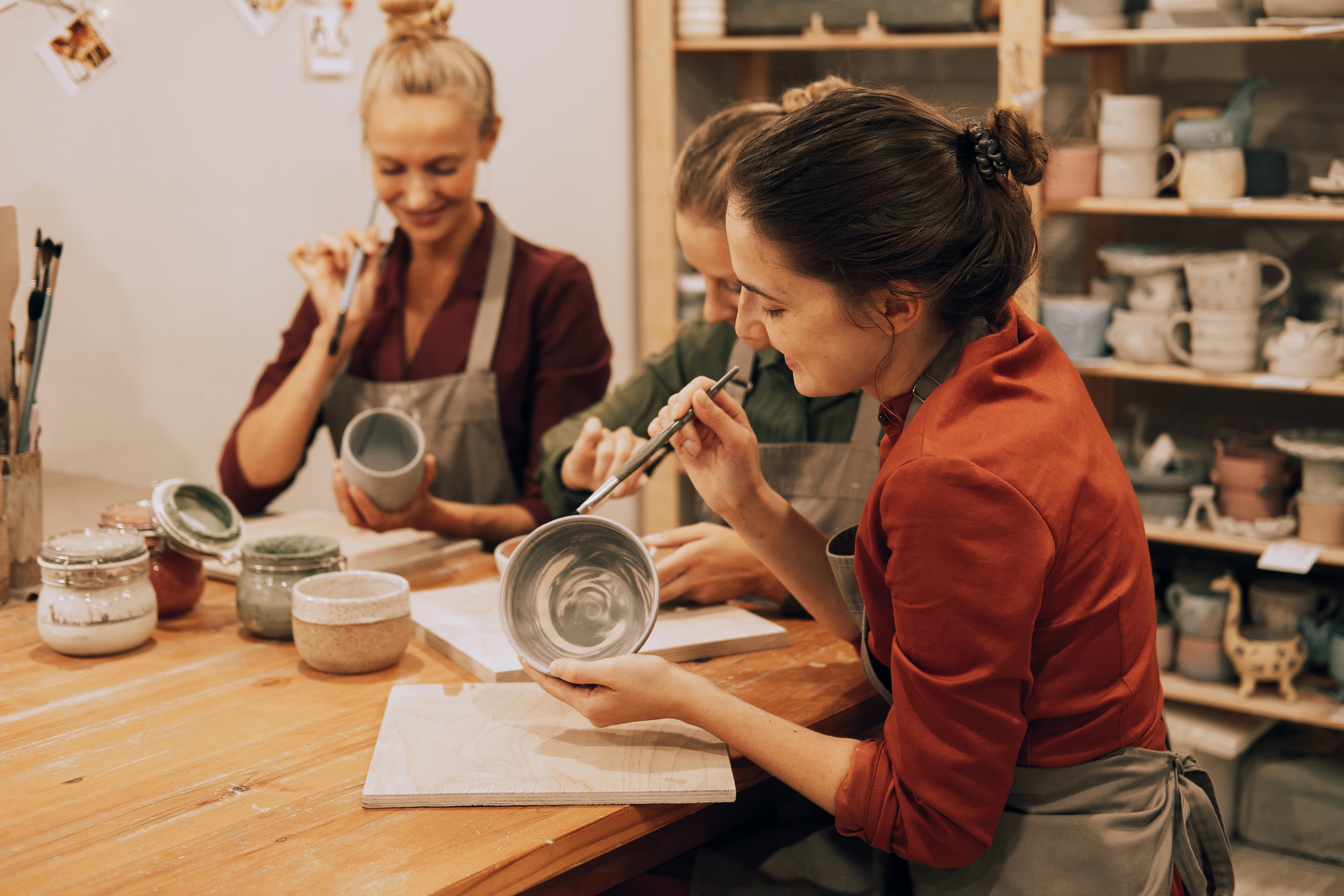
The best societies to join at uni
Uni societies have lots of benefits, from making new friends to learning new skills and getting to participate in exciting activities. Learn more about how to join a uni society and which types of society might be best for you.
Jump to section:
What are societies at university?
A university society can be defined as any group of students joining together for a shared interest. This can be related to study but it doesn’t have to be – many societies are based on hobbies and other interests.
There are loads of benefits to joining societies while at uni, and different types of societies can offer different perks. Whether you’re looking to make new friends, expand your skillset, or just do something you enjoy with a group of like-minded people, there will be a society for you at university.
How to join a uni society
There are several ways to join a uni society:
Go to the Fresher’s Fair at your uni and see what’s available there.
Visit your Student Union website or search online.
Look for active societies on social media or search your SU social accounts for related hashtags.
Speak to other people on your course or student accommodation about joining societies they’re part of.
Go to a few taster sessions to see if there’s something new you might enjoy.
How many societies should I join at uni?
There is no limit to the number of societies you can join at uni. However, remember that your uni work still needs to be your top priority. Perhaps you can join one or two societies in your first year. You can always join new ones later if you find yourself with plenty of free time once you’ve settled in.

Societies to make friends
One of the hardest parts of uni life is settling in – joining societies makes it easier to make friends in your first few weeks.
Subject societies
Joining a society related to the subject you’re studying means you’re more likely to meet people who are on your course. You’ll also have a ready-made topic of conversation, and you might find your course is that little bit easier when you have friendly faces to help you study.
Hobby societies
Unsurprisingly, people who share common interests are more likely to get on with each other. Joining a society based on a hobby you’re passionate about means meeting others with similar tastes, as well as getting to do something you love.
Sports societies
Sports societies can be competitive or just for fun. You can join the main sports clubs which might have annual leader boards and events, or go to groups of people getting together say for a morning jog. Whatever physical activity you enjoy, joining a society will ensure you meet others who want to get fit alongside you.
Niche societies
Many people have highly specific interests and passions. The good news is, in a decent-sized university, there’s high chance that your niche will also be someone else’s. If there isn’t already a Clockwork Orange appreciation society, a board games group, or a cake-eating club, then you could think about starting one of your own.

Societies to get fit
Societies based on physical activity have the added benefit of helping you to stay fit and healthy while you socialise.
Sports clubs
Many UK universities have 40 or more individual sports clubs, and some have close to a hundred. So, your uni likely has a club for almost any sport you can think of, from archery to Zorb football and every other letter of the alphabet in between. And if your favourite sport doesn’t have a club, perhaps you could start one? Most sports clubs will have an annual league and the opportunity to progress – in three to four years at uni, you could even reach national level!
Climbing
A climbing society may do anything from indoor bouldering to weekend trips away to places across the UK to tackle challenging new terrains. Many will also have equipment you can rent or borrow, so even if you’re new to climbing, you’ll be able to give it a try.
Work-out classes
A work-out class may not be what you would traditionally class as a society. However, they have most of the same benefits, and the flexibility to attend as and when it suits you. For that reason, these are usually popular choices among uni students. Fancy some hot yoga or a high-impact aerobics workout? Get your name down early each week to guarantee a spot.
Walking / hiking clubs
If high-intensity physical exercise isn’t quite your cup of tea, but you want to stay fit and spend time in the great outdoors, then you could try joining a walking or hiking society. Not only will you likely meet some great people, you’ll also explore more of the local surroundings than you might otherwise.
Joining a society helped me to make friends with like-minded people, settle into university life and become better acquainted with the city that was to become my home - Pauline M.

Societies to boost your career prospects
University is the perfect place to expand your repertoire of transferable skills, and you will likely have free access to high-end resources during your time as a student.
Debate society
Debate society can give you a multitude of transferrable skills that will help boost your career
prospects, as well as being a lot of fun. These skills include:
Public speaking
Organising and structuring ideas
Research techniques and digital skills
Active listening
Communication skills
Improved diction
Boosted self-esteem and confidence
Student newspaper
A role on the student newspaper shows prospective employers that you have a talent with words, can work well as part of a team, and are able to meet deadlines. If you’re looking at a career in journalism, being on the student newspaper is also a great way to start building up your portfolio of published articles.
Student council
Being on the student council demonstrates leadership qualities, teamwork, organisation, communication and public speaking ability – all soft skills that impress employers. A student council position can also help expand your CV when you leave uni, at a time when your actual work experience may still be fairly limited.
Foreign languages
Speaking more than one language is a definite plus in today’s multi-cultural, multi-national business world. With corporations having offices in more than one country, or customers coming from all over the world, there are lots of employers who need multi-lingual employees. Join a foreign language society and add another string to your bow before you leave uni.

Societies to have fun
A uni society doesn’t have to be about your course or expanding your skillset – some societies are purely about meeting people and having fun. And some are simply a bit wacky – here are five of the most unique student societies currently running in the UK:
Extreme Ironing Society (Nottingham University) – tackle this most mundane of household tasks in a variety of increasingly challenging places and styles.
Jailbreak Society (University of Warwick) – without spending any money on transport, students aim to get as far away from “jail” (usually campus) as possible in just 36 hours – some have made it to other continents!
Assassins’ Guild (Durham University) – members must hunt down targets and (mock) assassinate them, and at the same time they are also targets themselves.
Kigusoc (University of York) – if you love dressing up in animal onesies, there’s a society of likeminded people awaiting you at York University.
Tunnock’s Caramel Wafer Appreciation Society (University of St. Andrews) – perhaps the most niche of all, members gather weekly to discuss their favourite Scottish chocolate biscuit and spread the love of this popular snack.

Societies for your next hobby
From learning to play a musical instrument to honing your macrame skills, uni societies can be great places to find new hobbies or meet others who share your love for existing passions.
Crafting
If you’re already a bit crafty, or you just fancy learning some new skills, arts and crafts societies could be for you. Most unis will have one, and you can join in classes on skills such as pottery, painting, jewellery making and more. Plus, you’ll end up with some homemade souvenirs to remind you of your time at uni.
Knitting / sewing
Even if you don’t know how to knit or can’t tell one end of a crochet hook from the other, if you join a society there will be people there who can help you learn. Clubs such as “Stitch ‘n’ Bitch” at The University of Leeds are designed to be social as well as crafty.
Gaming
If video gaming is your passion, then you could meet likeminded people by joining a gaming club, such as H.U.G.S (Hull University Gaming Society). Activities include weekly chillout socials, participation in university Esports, and a 24-hour charity gaming marathon.
Music
If you already play a musical instrument, you could look for an orchestra or band to join. If not, you could find a society where you can learn to play something beyond chopsticks on the piano.
Ready to make friends, learn new skills and make the most of the unique opportunities at uni? Sounds like it’s time to join a society.
Societies for a good cause
Joining societies that support a good cause gives you that added feel-good factor – plus, you’ll probably find that anyone involved in volunteering or community service is very friendly.
RAG (Raise And Give)
RAG Week has long been a popular university event at establishments across the UK, where students raise money for good causes through various activities. Joining a RAG society means you can take part in helping to organise RA
G Week, and multiple other events at other times of year.
UNICEF
UNICEF has societies and fundraising activities at universities across the UK. By joining UNICEF, not only do you get to give something back during your time at university – you could also open opportunities to work with the UN if you show how committed you are.
Vo
lunteering
You can volunteer to join in any fundraising event without being part of the society that organises it. If you don’t feel you have the time for a proper commitment but still fancy doing some good, keep an eye out for requests for volunteers at those times of the year
when you do have a little more free time.
